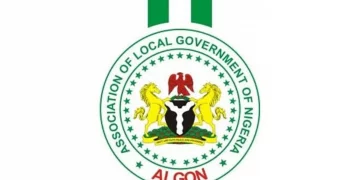Stakeholders from civil society, religious institutions, governance bodies, and development organisations, have called on the Federal Government to swiftly implement the Supreme Court’s landmark ruling on local government autonomy, describing it as critical to reviving grassroots governance and accelerating national development.
The call was made during a National Dialogue Forum with the theme: “Local Government Autonomy: Making It Work”, organised by the Change We Need Nigeria Initiative in Abuja.
In his keynote address, Director of the Abuja School of Social and Political Thought, Dr. Sam Amadi, traced the historical evolution of local government in Nigeria.
He lamented that the third tier of government has become “functionally dead” in most parts of the country.
“Across the country, local governments have become mere ornaments. In most states, there are no elected officials at the local level. Instead, they are run by appointees of state governors, contrary to the spirit and letter of the Constitution,” Amadi said.
He argued that a local government not democratically elected is “not a local government under the law,” adding that the recent Supreme Court ruling should be seen as a corrective step toward restoring grassroots democracy.
However, Amadi also raised constitutional concerns, noting that while the judgement aligns with public sentiment, it may contradict certain provisions of the 1999 Constitution.
He called for constitutional reforms to harmonise the legal framework with the apex Court’s position.
Also speaking, former chairperson of the Abuja Municipal Area Council (AMAC), Esther Audu, shared practical insights from her time in office, underscoring the value of community engagement and participatory governance.
“We must have committed people who understand and care about the needs of their communities. The people must hold their councillors accountable, and councillors must engage their chairmen. That’s how responsive governance happens,” she said.
She described how her visits to various wards revealed pressing issues — ranging from lack of potable water to students learning under trees — and praised the media for amplifying these issues and prompting government intervention.
General Overseer of the Charismatic Renewal Ministries (CRM), Dr. Cosmas Ilechukwu, described the Supreme Court decision as a “watershed moment” that could redefine governance in Nigeria — if there is political will.
“The local government system is the one tier of government that touches everyone directly. If we get it right at that level, the impact will be immediate and widespread,” he said.
He echoed calls for an independent electoral body — such as INEC — to conduct local government elections, noting that state electoral commissions are often influenced by governors.
“Democracy is not possible where the governor determines who wins all the chairmanship positions. That’s not democracy. That’s manipulation,” he added.
Head of Advocacy, Policy, and Communications at WaterAid Nigeria, Kolawole Banwo, noted contradictions in the current legal framework governing local government administration.
“The Constitution gives with one hand and takes with the other. While it recognizes local governments as a tier of government, it also subjects them to the control of state assemblies and ties their finances to the Joint Local Government Account,” he explained.
Banwo called for the abolition of the joint account system and urged constitutional amendments to “Guarantee independent funding, Ensure secure tenure for elected officials, Provide for free and fair elections.”
He also proposed a novel accountability mechanism in which the runner-up in a local election serves as a “chairman-in-waiting,” and a mid-term referendum is conducted to evaluate the sitting chairman’s performance.
“This will keep leaders on their toes and ensure performance,” he added.





